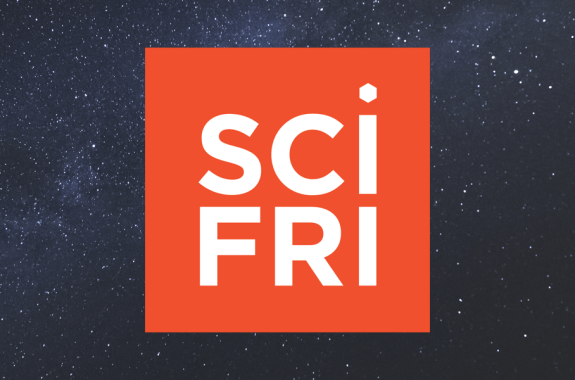December 27, 2024
We’re taking time to reflect on all that 2024 brought us in the world of science, from the total solar eclipse in April to the demise of the Ingenuity helicopter on Mars and the rise of the blockbuster GLP-1 weight-loss medications.
December 20, 2024
The science advisor for “Interstellar” discusses the film’s impact, and how new information about gravitational waves could have changed it. Plus, NASA’s Parker Solar Probe will break its own record for closest approach to the sun—just 3.8 million miles away. And, with drone sightings in the news, we take a look at the current laws and regulations around hobby and commercial drone operation.
December 13, 2024
“The Burning Earth” examines over 800 years of history to demonstrate how violence against people and the planet are one and the same. Plus, a program trains women as tactile medical examiners to identify tumors before they show up on imaging scans. And, scientists studied the sitting habits of more than 1,000 adults to zero in on the link between time spent sitting and specific health outcomes.
December 6, 2024
You asked for science book recommendations for the kids in your life. Two bookworm experts respond—and share their own favorites. Plus, new research suggests that we share parts of our microbiome with people in our social networks beyond family members. And, a medical toxicologist discusses the most common household risks to kids during the holiday season.
November 29, 2024
For our 33rd anniversary, we’re broadcasting some of our listeners’ favorite SciFri stories. And, this year’s Ig Nobel Prizes include awards for studying coin flipping, the movements of a dead trout, and more.
November 22, 2024
On the 50th anniversary of Lucy’s discovery, paleoanthropologists reflect on what she means to science, and what she taught us about ourselves. Plus, divers have recovered seeds of a long-lost rye variety from a 146-year-old shipwreck in Lake Huron. And, just in time for Thanksgiving, a potato researcher explains potato varieties, potato nutrition, and some tubular tuber facts.
November 15, 2024
Medical historian Dr. Elsa Richardson discusses the changing cultural and scientific understandings of the gut. Plus, a “one-of-a-kind” fossil helps fill a giant gap in scientists’ understanding of how bird brains evolved. And, walking pneumonia typically affects school-age kids, but the CDC reports a rise in cases in children aged 2-4.
November 8, 2024
Decades of research shows that expanding highways, despite its promise to reduce congestion, actually increases travel times. Plus, a math enthusiast finds the largest known prime number. And, blood pressure categories are based on patients who are sitting in a certain position. But not every doctor’s office takes readings that way.
November 1, 2024
Running a marathon is a major physical feat. One expert answers listener questions about how it impacts the body and mind. Plus, the Clean Air Act gave the U.S. some of the world’s cleanest air. But with industrial zones and climate change, it’s not protecting everyone. And, an author and naturalist discusses chicken intelligence and her experience raising a flock in New Hampshire.
October 25, 2024
COP16 will tackle questions like who should profit from non-human DNA, and who is responsible for financing critical conservation projects. And, in “The Insect Epiphany,” an entomologist explores the history of insects in art, food, engineering, and more. Plus, abortions later in pregnancy are the most stigmatized, leading to misinformation and a hesitancy to talk openly about why people have them.
